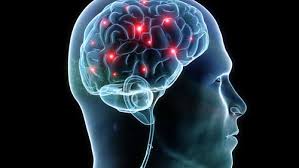 A new report published in the journal JAMA Pediatrics indicates that children who have suffered a traumatic brain injury (TBI) are more than three times as likely to develop ADHD than kids with other injuries. This finding raises some critical questions for me. First, ADHD is typically described as a neurobiological disorder of genetic origin. How then can injury to the brain ”cause” ADHD, since according to ADHD advocates, it’s been in the child all along? Second, if kids who suffer TBI are three times more likely to develop ADHD, then why isn’t anyone hypothesizing that perhaps the ADHD-like behaviors being observed in these kids are not innate, but in fact due to the brain injury. Or to put it another way, perhaps what we’re looking at in these kids is TBI and not ADHD.
A new report published in the journal JAMA Pediatrics indicates that children who have suffered a traumatic brain injury (TBI) are more than three times as likely to develop ADHD than kids with other injuries. This finding raises some critical questions for me. First, ADHD is typically described as a neurobiological disorder of genetic origin. How then can injury to the brain ”cause” ADHD, since according to ADHD advocates, it’s been in the child all along? Second, if kids who suffer TBI are three times more likely to develop ADHD, then why isn’t anyone hypothesizing that perhaps the ADHD-like behaviors being observed in these kids are not innate, but in fact due to the brain injury. Or to put it another way, perhaps what we’re looking at in these kids is TBI and not ADHD.
I’ve criticized the diagnosis of ADHD over the years because I believe that a number of other influences are involved in the behaviors associated with ADHD (e.g. diet, media, stress, lead poisoning, boring classrooms, etc.), and different kids are going to have different reasons for these behaviors rather than one over-arching ADHD diagnosis. So now, apparently, we can add TBI to the list of confounding factors with respect to an ADHD diagnosis.
Of course, this makes perfect sense: injury to the brain, and in particular to areas in the prefrontal cortex which control executive functions like inhibition, decision-making, and organizational skills, would cause problems related to these functions, which are the behaviors associated with ADHD. But what bothers me is that ADHD is considered axiomatic in today’s fast-paced world and the TBI is just treated as an overlay, when in the case of the kids in this study, it appears to be the real culprit. The authors of the study refer to this ADHD as ”secondary” ADHD (SADHD). Isn’t this just a fancy way of saying it’s not ADHD, it’s something else, in this case TBI? I think we ought to use Occam’s Razor, and keep things as simple as possible, not have two or three diagnostic categories (ADHD, SADHD, TBI) where one would do very nicely here.
For more on my criticisms of the ADHD hypothesis see my book: The Myth of the ADHD Child, Revised Edition: 101 Ways to Improve Your Child’s Behavior and Attention Span Without Drugs, Labels, or Coercion.
This article was brought to you by Thomas Armstrong, Ph.D. and www.institute4learning.com.
Follow me on Twitter: @Dr_Armstrong



















